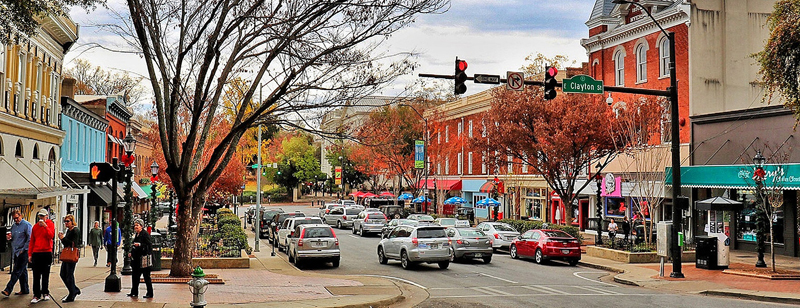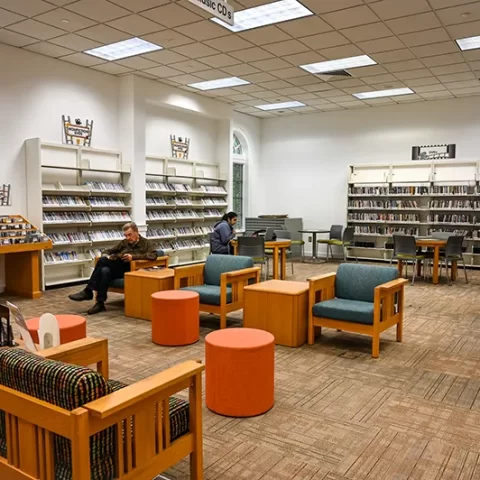By: Kathryn Rozboril

What Are Nonprofits?
Nonprofits play an important role in every city, often working behind the scenes to support community welfare. In fact, nonprofits tend to do a lot more behind the scenes than we realize. So what are they? Nonprofits are organizations that do not generate or distribute profits to shareholders or individuals. They serve the public good in various ways and include charitable organizations, religious organizations, homeowners associations, and labor unions among many others. The most impactful types of nonprofits are public charities, also known as charitable nonprofits. These are nonprofits that promote social welfare, private foundations, and religious organizations.
In Georgia, there are approximately four nonprofits for every thousand people. Though nonprofits tend to be concentrated in larger cities, where more people live, many focus on improving conditions in rural areas in the state. Overall, 1.3 million charitable nonprofits serve their communities across the United States. In Athens alone, 1,390 nonprofits generate over two billion dollars in revenue each year. Some of the most influential nonprofits in Athens include Project Safe Inc, Athens-Oconee CASA, the Athens Area Humane Society, Books for Keeps, and the Jeannette Rankin Women’s Scholarship Fund. Additionally, Athens has a community foundation dedicated to raising and managing funds for local charities and foundations.
Community foundations have a vital role in managing nonprofit donations in cities with a high number of charitable organizations. A community foundation in Athens was established in 2008, and in less than 20 years, the Athens Area Community Foundation has grown to oversee 293 funds and manage $32 million in grants. The foundation does this by connecting donors with nonprofits and working with advisors to create donation plans. Furthermore, The Foundation connects donors with causes that align with their philanthropic goals. They help donors who wish to contribute broadly, support a specific cause, or direct their funds to a designated foundation.
Why Are Nonprofits Needed?
Nonprofits bridge the gap between what the government provides and what citizens can provide for themselves. In addition to services like providing food or donating books, nonprofits employ 12.8 million people nationwide and significantly impact the economy. More importantly, These nonprofits support human rights and health. One way they do this is through advocacy as an intermediary between individuals with fewer resources and the government sector. Nonprofits are essential to addressing community-specific needs that the broad federal government cannot identify. This includes overarching goals like human rights and welfare which are best addressed through localized, community-driven efforts that understand the unique challenges and cultural contexts of the people they serve.
A major example of the influence of nonprofits is in the healthcare sector. Over half of the hospitals in the U.S. are nonprofit. Research from the National Institute of Health indicates that communities with strong nonprofit networks experience better community health including lower illness rates and higher infant health and mental health levels. Athens is no exception. In Athens, Piedmont Athens Regional Medical Center is nearly entirely funded by community grants. Over 2023, the hospital had 21,900 in-patient admissions and 82,046 out-patient ER visits. This means in 2023, the hospital helped patients over 100,000 times – making Piedmont hospital a crucial resource for people in the Athens area. Public hospitals are important examples of how public-serving nonprofits play a major role in nearly every American’s life.
What can we do better?
Despite their significance, support for nonprofits has been decreasing. In 1980, 85% of Americans donated to charitable causes, but that number has since fallen to 50%. Additionally, only 33% of Americans believe that nonprofits contribute to society. While many people favor the idea of giving to charitable nonprofits, fewer are actively donating. A major factor in this decline is a lack of awareness: one study reported that 62.6% of people had little to no knowledge of nonprofits while only 1.5% considered themselves experts. Furthermore, although nearly 10% of Americans work for nonprofits, only about 5% of Americans believe that nonprofits have benefitted themselves or someone in their family directly. Because many people don’t understand the extent to which nonprofits benefit society and themselves, they are often reluctant to donate. This hurts both the economy and nonprofits’ ability to respond to disasters, provide resources, and promote healthcare.
Addressing this issue starts with education and engagement. In Athens, college students can volunteer, spread awareness, and support local nonprofits. Additionally, college students everywhere can look into supporting their local community foundations. Support from university students in Athens will bring stronger statewide and national support for the Athens Area Community Foundation. This can be done through social media outreach, University-led initiatives, and collaboration with organizations on the UGA’s campus. By increasing community involvement, Athens residents, whether temporary or lifelong, can help grow the nonprofit sector, ensuring that these organizations can continue to serve those in need.

